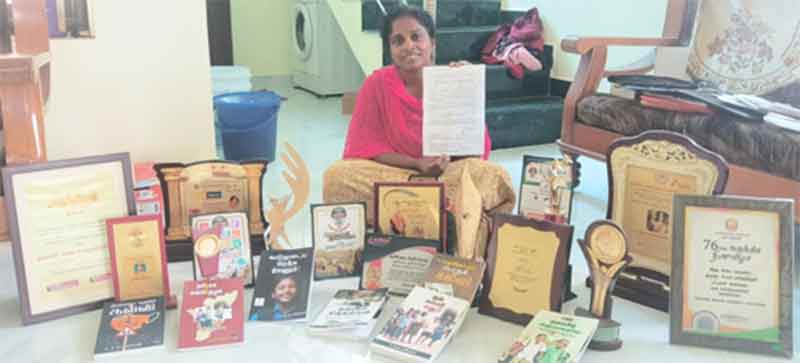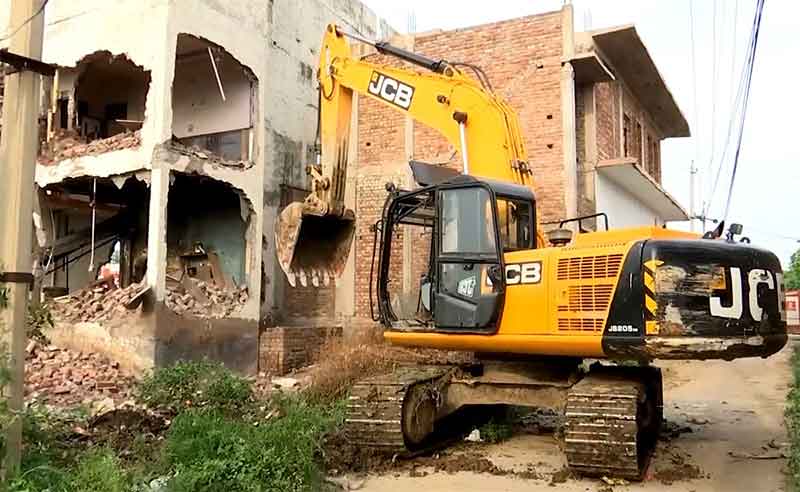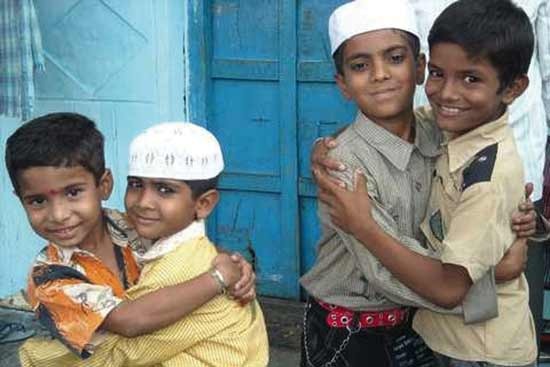by Dr Mohit Kumar Gupta & Ashish Kumar Singh

Human Rights are the ‘legal soul’ of an individual. If perhaps they could be made ‘soul’ only. The violation of these rights in any of the ways, be it either their brazen negligence by the State machinery or any loophole in their enforcement through the court of law necessarily carries consequences far and beyond the legal domain. It is often found that if a matter in relation to their enforcement is sub-judice subject bearer continues to bear the multifaceted consequences of their lack in enforcement.
In India’s case itself where exists full and sumptuous transparency through the force of law concerning their enforcement it is found that the Courts (Here in after for Apex Court and all High Courts) are often not able to take their judicial notice. The Fundamental Rights (FRs) which are conferred on every individual in its substance are in existence even prior to constitutional enforcement of them. Their enforcement in few and far between situations is often cited as one of the mnemonic gist of the times. It is therefore important and pertinent to understand the root cause of the problem and to suggest effective remedy against it.
The Civil Procedure Code one of the foundational laws in India predating Morly-Minto Reforms requires the courts of law to stay a matter brought before it in a given set of situations as illustrated in its provisions. These situations cannot overcome the very basic human rights of individuals. It has in effect become one of the oft-mentioned Right through the courtly interferences among and through the various pronouncements of the Courts. Different provisions of FRs have been able to help the citizen of this country in diversified situations. The important streak of judgments from the Courts is nevertheless hyphenated in plethora of situations.
Article 21 of the Constitution of India states that no person shall be deprived for his life or personal liberty except according to procedure established by law. Thus, this article ensures two rights: a) right to life, b) right to personal liberty. The Supreme Court of India has in numerous pronouncements described this right as the “heart of fundamental rights.”
In A K Gopalan vs the State of Madras (1951), the SC held that protection under Article 21 is only available against arbitrary executive action and not from arbitrary legislative action. It implied that the State can deprive a person of the rights available under article 21 based on a law.
In this very context It is also important to understand that the conferred right is against the State and not against the government in power. With increasing politics of polarization this right has often at times been seen against the existing government in power through the lenses of inordinate media circles of the time.It therefore, carries a mixed response through the different sections of society in the democracy like ours. Its understanding in the light of the words of a noted jurist (Justice Bhagwati) according to whom, Article 21 “embodies a constitutional value of supreme importance in a democratic society.”
Several judgments have widened the scope of Article 21 far and beyond. For instance, In Kharak Singh vs. the State of UP and others (1962), the right to privacy was added to Article 21. In Sunil Batra vs. Delhi Administration (1978, 1979) the Supreme Court said that the fundamental rights do not flee as the person enters prison.Thus their enforcement with respect to prisoners is more often put to question than with respect to an ordinary person.
The broader view of looking into this right had well started since E.P. Royappa case. Then in another important case of Hussainara Khatoon vs. the State of Bihar (1979) where the SC stated that everyone has the right to a prompt trial. The Supreme Court held here that equal justice and free legal aid of an accused person are also part of a fundamental right under Article 21. The court further went on to assert that handcuffing a person is unconstitutional. The enriched vividity of this right can further be looked into through the Mohini Jain vs State of Karnataka, where the SC ruled that right to life also includes the right to education. Furthermore, in the age of environmental awakeningfor instance, in Subhash Kumar vs State of Bihar the SC ruled that right to get pollution-free air is within the ambit of right to life.
However, it is important to note that in Maneka Gandhi vs Union of India (1978), the SC overruled its own judgment of the Gopalan case by giving a wider interpretation of Article 21. The court ruled that the right to life and personal liberty of person can be deprived by law on the condition that the procedure prescribed by that law is reasonable, fair, and just. The court added that right to life does not mean a mere animal existence. It held that all those aspects of life which make a man’s life meaningful, worth living and complete will be included in its ambit.
Earlier, In Satwant Singh Sawhney vs. APO, New Delhi (1967), the Supreme Court had added that right to travel abroad is an extension of personal liberty given by the Article 21 of Indian Constitution and which was relooked in Maneka Gandhi case and subsequently firmly established. In Olga Tellis vs. Bombay Municipal Corporation (1985), the SC held that right to livelihood is also included in the Article 21.
In the case of Ashish Gupta vs. Tata Power Delhi Distribution Ltd. (2022), the Delhi High Court held that electricity is one of the fundamental rights for existence under Article 21. Article 21 has been cited in several other cases related to electricity, notably among them is Puttan vs State of U.P. and another (WRIC 27495/2021 along with other petitions). In this case, it was found that the electricity department harassed the petitioner for years leading to the arrest of the petitioner, violating fundamental rights given under Article 21 of the Indian Constitution. The court here added that:
“Every limb of the constitutional machinery is obliged to be people oriented. Servants of the government are in fact servants of the people. Therefore, the use of their power must always be subordinate to their duty of service. If a public functionary acts maliciously or oppressively and the exercise of power results in harassment and agony then it is not an exercise of power but it is abuse of power for which the law does not protect them and they must suffer. Harassment of a common people by public authorities is socially abhorring and legally impermissible. It may harm him personally but the injury to society is far more grievous. Nothing is more damaging than the feeling of helplessness. An ordinary citizen instead of complaining and fighting succumbs to the pressure of undesirable functioning in offices instead of standing against it. Therefore, award of compensation for harassment by public authorities not only compensates the individual, satisfies him personally but helps in curing social evil.”
In the light of these mentioned situations, where the Courts came down heavily against the executive organ of the State where individuals suffered on a continuous basis due to the matters being sub-judice,it therefore seems necessary to investigate such matters on a wider scale to point out the possible violations of such basic human rights even prior to their violations as such. In the given democratic set up, media, civil society and institutions of State machinery should be extra vigilant and careful to monitor and to ensure that fundamental rights are not overlooked or suppressed or remain unnoticed due to State’s actions or inactions. The comments left by the top judicial bodies of the State just don’t keep on harping the same notations time and over time again.
(Dr. Mohit Kumar Gupta is a senior assistant professor at the Faculty of Law, UPES, Dehradun. Ashish Kumar Singh is a doctoral candidate of Political Science at NRU-HSE, Moscow, Russia).
















































